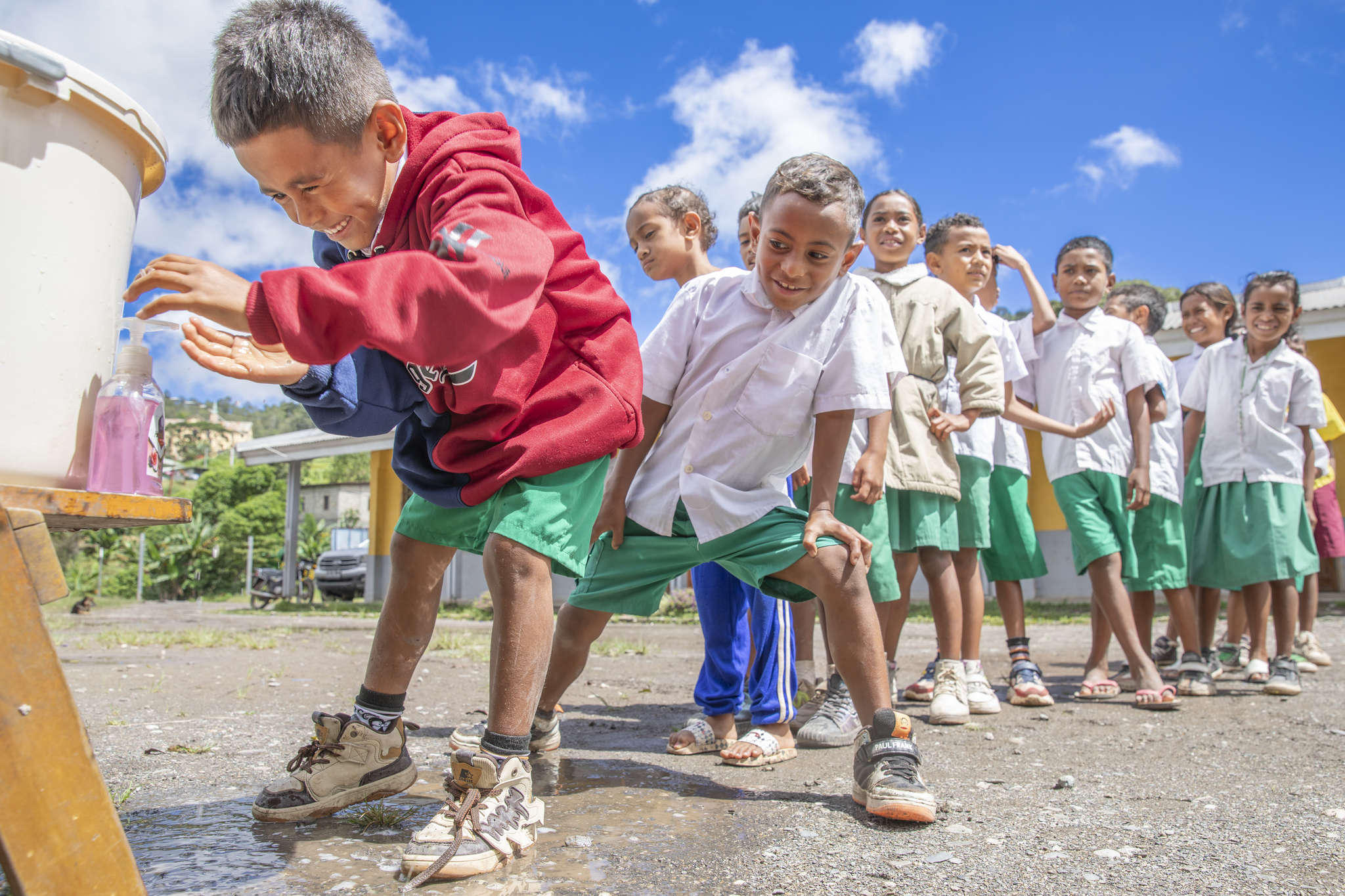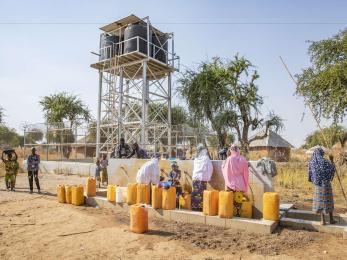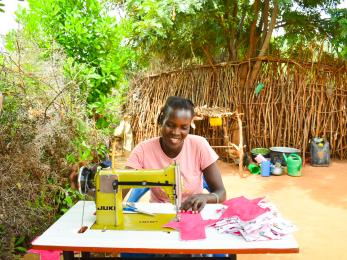Truly, skills for employment and skills for life

A few weeks ago, I was honored to serve as the Chief Judge at an interschool debate on HIV/AIDS prevention. Under a perfect blue Ugandan sky, youth from two neighboring schools prepared to deliver remarks on the importance of abstinence, safe sex, delayed marriage and healthy life choices.
I expected some of the young debaters — Peer Educators in Mercy Corps’ Youth Empowerment Program (YEP) — to display at least some signs of anxiety and nervousness over the event. These youth were orating not only before a panel of judges, but also an audience comprised of more than 150 peers and key members of the community. Even though the Peer Educators had organized the event as part of YEP’s life skills program, I anticipated seeing some beads of sweat, perhaps a little stuttering and maybe even a few tears. After all, public speaking terrifies most adults I know!
However, as the debate began, my predictions were quickly shattered. One by one, the young participants — all neatly dressed in crisp uniforms for the occasion — shared articulate, passionate messages about the effects of HIV/AIDS in their community. With loud, clear voices, they not only delivered powerful remarks, but also adjured their peers to share the information with their families. Members from the two debate teams also replied to complicated rebuttals with calm, thoughtful responses.
I was ineffably impressed by the confidence and aplomb of these youth. And I wasn’t the only one. With wide-eyes, their classmates keenly observed the dialogue in silence and in complete admiration. In addition to creating social awareness, these Peer Educators were empowering their fellow students, by displaying leadership skills and by serving as responsible, positive role models. Admittedly, I had a very difficult time selecting a “winning” team.

Just yesterday, I observed ten YEP Peer Educators from Wimunu Pecek school deliver a live radio broadcast on the popular Luo FM, summarizing messages from the earlier debate. Once again, I was astounded by the poise, confidence and thoughtful leadership displayed by the youth. After rigorous research and preparation, the students each gave eloquent, structured remarks on the topic, fully aware that their voices and messages were reaching more than one million listeners in eight Ugandan districts, as well as parts of southern Sudan.
So why are these activities, these life skills, so important for Ugandan youth in their transition to adulthood and in their quest for economic engagement? After all, YEP strives to enhance the employability of youth.
Over the past two months, I have been studying the factors preventing youth from gaining employment in northern Uganda. During a recent focus group discussion, a young woman named Concy shared that she had participated in a vocational training course, with the hope that the skills would provide her with both job security and a steady income.
“I completed an intensive, nine-month course in tailoring,” she told me in an exasperated voice. “But I have never been able to use the skill because I do not have money to buy a sewing machine.” Concy added that she has since forgotten the technical knowledge learned through the training. While pacifying her infant on her lap, she told me that she is still seeking work.
I have listened to many similar stories of frustration.
One male youth told me that a non-governmental organization sponsored him to spend an entire year learning Information Technology skills; however, since graduating, he has been unable to find employment due to lack of demand for the skill in his community. (Pader Town, the capital of this district, just received electricity a few months ago.)

What I have learned through my conversations with youth — as well as local employers and consumers — is that a solid education and a mastered technical skill are certainly helpful in a securing a job or running a business; however, many other factors and resources contribute to preparing youth for business success. The lack or presence of basic life skills, such as effective communication and the ability to make critical decisions, have a profound and often overlooked impact on the “employability” of youth.
Along with support for income-generating activities, an integral part of YEP is training in life skills, or soft skills. Together, these two components holistically prepare youth for becoming successful entrepreneurs and employees. In addition to effective communication and problem-solving skills, YEP’s life skills activities encourage leadership techniques, punctuality, conflict negotiation, strong work ethics and proper hygiene, topics that differ from hard business skills and are often not fully addressed in schools.
These skills are truly life skills, as they are always marketable and transferable, even in a stagnant labor market. These personal and interpersonal skills are particularly important for youth who were former child soldiers during Uganda’s civil war and for those who spent prolonged periods in camps as internally displaced persons (IDPs). Life skills training allows youth to gain confidence and skills which will help them throughout their careers: in interviews, in managing customers and with making difficult decisions.
In Uganda, many young people feel that they are not respected or appreciated by adult figures and employers. YEP’s life skills program encourages youth to gain confidence in their workforce capabilities and in their role in society. Through life skills activities such as the debate and radio broadcast, youth are able gain the respect of their elders and their community by demonstrating that they are capable, confident and prepared for responsible economic engagement.


